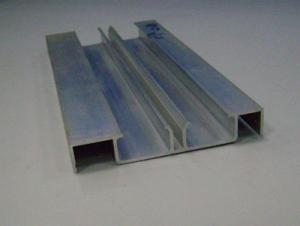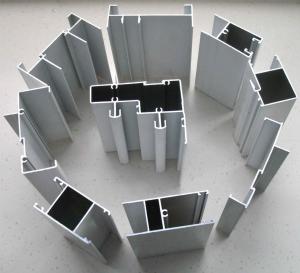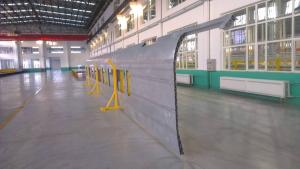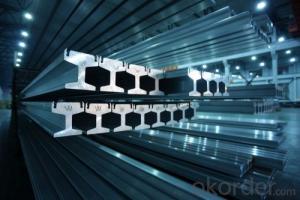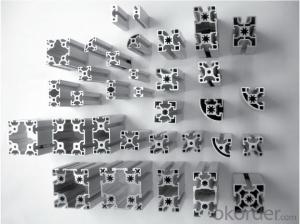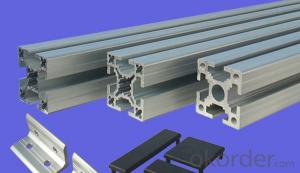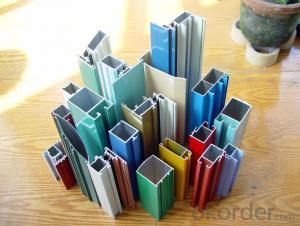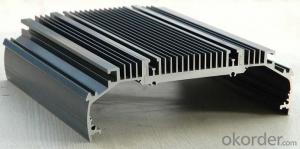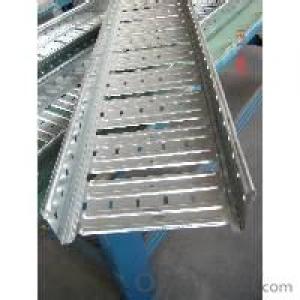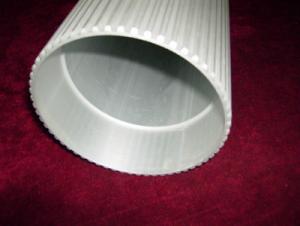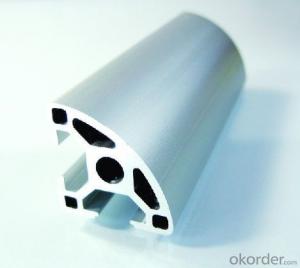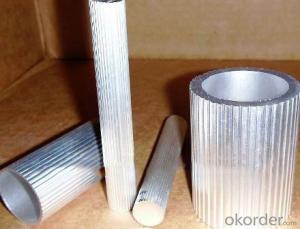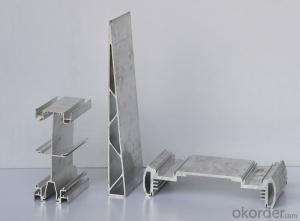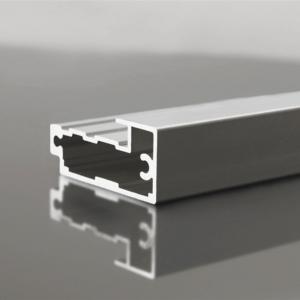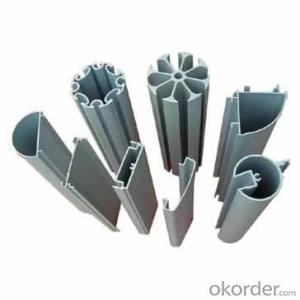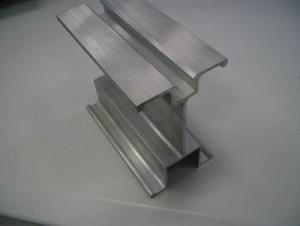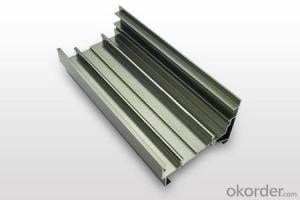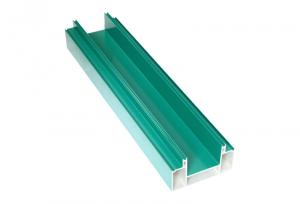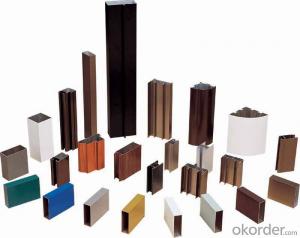Extruded Aluminum Structural Profiles - Extrusions Aluminum Profile
- Loading Port:
- China Main Port
- Payment Terms:
- TT OR LC
- Min Order Qty:
- -
- Supply Capability:
- -
OKorder Service Pledge
OKorder Financial Service
You Might Also Like
Aluminium Profile
Our advantages:
1)we can provide"one- stop service from melting,extruding,surface treatment,machining,welding,assembling to mould design & building.
2)we have a good capacity of precise machining,cnc machining.
3)we can provide good quality with reasonable price.
Products:
Description | Aluminium Profiles |
Alloy | Al 6063 T5 /T6 or 6061 or 6005 or as per customers' need |
Finish | Anodizing or powder coating with various colors |
Packing | Foam sheet,poly bag,plastic bag,carton |
Brand | YMJ |
Original place | |
Certificate | ISO9001 |
Equipments:
7extruders,2 six meters long anodizing lines,1 twelve meters long anodizing line(including dyeing & electrolysis).1 powder coating line,5 melting lines,12 CNCs(including 2 machines which can mill 6.5m long profile),10 argon arc welding machines and multiple machines for cutting,drilling,punching,milling,shearing and bending,2 spectrum scanners,1 projective instument,1 extension test machine,1 mechanical property tester,1 Rohs tester and 1 metallurgical microscope.
Service:
We're a well- established manufacture for aluminium products,we're confident we can give our customers complete satisfication.
We can provide good quality with reasonable price.
- Q: What are the safety features of aluminum profiles in construction?
- Aluminum profiles are a popular choice for construction due to their range of safety features. They are both lightweight and durable, making them easy to handle and install while still providing structural integrity. This reduces the risk of accidents or injuries during the construction process. Furthermore, aluminum profiles are non-combustible, meaning they do not contribute to the spread of fire. This is crucial for ensuring the safety of occupants and minimizing fire-related hazards. In addition, aluminum profiles have excellent corrosion resistance properties. They are naturally resistant to rust and decay, allowing them to withstand harsh environmental conditions and maintain their structural integrity over time. This is particularly important in coastal or humid areas where corrosion risk is high. Moreover, aluminum profiles can be designed to incorporate safety features such as non-slip surfaces or grooves for enhanced grip and stability. This is especially beneficial in applications where slip and fall accidents may occur, such as staircases or walkways. Additionally, aluminum profiles offer excellent electrical conductivity, making them advantageous for electrical installations. Their high thermal conductivity helps dissipate heat efficiently, reducing the risk of overheating or electrical malfunctions. Lastly, aluminum profiles are recyclable, aligning with sustainable construction practices and contributing to waste reduction and environmental impact. In conclusion, the safety features of aluminum profiles in construction, including their lightweight yet durable nature, non-combustibility, corrosion resistance, ability to incorporate non-slip surfaces, excellent electrical conductivity, and recyclability, make them a safe and sustainable choice for construction projects.
- Q: Aluminum blackening formula
- Anodic oxidation of aluminum is aluminum or Aluminum Alloy anode to lead as cathode in sulfuric acid, oxalic acid, chromic acid and aqueous solution electrolysis, so that the surface oxide film. The anodic oxidation process is most widely used. Aluminum and Aluminum Alloy sulfuric acid anodizing oxidation film has high adsorption capacity, easy sealing alone or with colored more to improve the corrosion resistance of anodic oxide film thickness and appearance. The process is generally Aluminum Alloy sulfuric acid anodizing electrolyte has the advantages of simple operation, stable, cost is not high, the process is mature, but in sulfuric acid anodized process often unavoidable failure occurred, influence of oxide film quality. The following detailed analysis about the failure reasons, then give some preventive measures for your reference:Common faults and analysisAluminum Alloy products by sulfuric acid anodic oxidation, partial oxidation without touch, showing visible black spots or stripes, film drums or holes. The failure phenomenon of tumor is rare but has occurred.Dr. al website has detailed knowledge
- Q: What are the different machining techniques used on aluminum profiles?
- Some of the different machining techniques used on aluminum profiles include milling, drilling, turning, grinding, and tapping. These processes help shape and refine the aluminum profiles to meet specific design requirements and achieve desired dimensions and surface finishes.
- Q: Can aluminum profiles be used in lighting fixture manufacturing?
- Aluminum profiles are indeed suitable for the manufacturing of lighting fixtures. In the lighting industry, aluminum is widely employed because of its many advantageous qualities. It possesses light weight, durability, and corrosion resistance, which make it perfect for both indoor and outdoor lighting fixtures. By easily molding and manipulating aluminum profiles, one can create diverse designs and forms, thereby enabling innovative and imaginative lighting solutions. Moreover, these profiles can be coated or anodized, thereby enhancing their visual appeal and providing extra protection against damage. All in all, due to their versatility, functionality, and aesthetic appeal, aluminum profiles are highly favored in the manufacturing of lighting fixtures.
- Q: Is it possible to recycle aluminum profiles and repurpose them for construction purposes?
- <p>Yes, aluminum profiles can be recycled and reused as building materials. Aluminum is highly recyclable, and the recycling process requires significantly less energy compared to producing new aluminum from raw materials. Recycled aluminum maintains its strength and properties, making it suitable for various construction applications. This practice not only conserves natural resources but also reduces waste and environmental impact.</p>
- Q: Can aluminum profiles be used for agricultural or farming applications?
- Yes, aluminum profiles can be used for agricultural or farming applications. Aluminum is lightweight, durable, and corrosion-resistant, making it suitable for various agricultural equipment and structures such as greenhouse frames, irrigation systems, storage sheds, and livestock enclosures. Additionally, aluminum profiles can be easily fabricated and customized to meet specific farming needs, making them a versatile choice for agricultural applications.
- Q: How do you join two aluminum profiles together?
- One common method to join two aluminum profiles together is by using aluminum extrusion connectors. These connectors are designed to fit into the profile's T-slot or slot, allowing them to be easily connected and secured using screws or bolts. This method provides a strong and durable connection, ideal for constructing various structures and frames.
- Q: How do aluminum profiles perform in terms of corrosion resistance?
- Aluminum profiles have excellent corrosion resistance due to the formation of a protective oxide layer on their surface. This oxide layer acts as a barrier, preventing further corrosion and making aluminum profiles highly resistant to rust and other forms of corrosion.
- Q: Are aluminum profiles suitable for decorative applications?
- <p>Yes, aluminum profiles are commonly used for decorative purposes. They offer a sleek, modern look and are lightweight, durable, and resistant to corrosion. They can be anodized or powder coated in various colors to match different design aesthetics. Aluminum profiles are versatile and can be used in architectural features, furniture, and various other decorative elements.</p>
- Q: Are aluminum profiles recyclable?
- Yes, aluminum profiles are recyclable. Aluminum is a highly recyclable material, meaning it can be melted down and reused multiple times without losing its quality. Aluminum profiles, which are used in various applications such as construction, transportation, and manufacturing, can be easily recycled by collecting them from end-of-life products or scrap material and sending them to a recycling facility. The recycling process involves shredding the aluminum profiles into small pieces, removing any impurities, melting the aluminum, and then casting it into new profiles or other aluminum products. Recycling aluminum profiles helps to conserve natural resources, reduce energy consumption, and minimize environmental impact compared to producing new aluminum from raw materials.
Send your message to us
Extruded Aluminum Structural Profiles - Extrusions Aluminum Profile
- Loading Port:
- China Main Port
- Payment Terms:
- TT OR LC
- Min Order Qty:
- -
- Supply Capability:
- -
OKorder Service Pledge
OKorder Financial Service
Similar products
Hot products
Hot Searches
Related keywords
